43 carbohydrates on food labels
How are Carbohydrates & Dietary Fiber Labelled on Foods? Net carbohydrate is the total amount of carbohydrate, minus the amount of dietary fiber found in a food, and is often displayed on the front of food packaging. Essentially, this is a fancy way for food manufactures to market their food as being more superior than their competitors. For example, a protein bar manufacturer may make the claim that ... How To Read Food and Beverage Labels | National Institute on Aging At the top of the Nutrition Facts label, you will find the total number of servings in the container and the food or beverage's serving size. The serving size on the label is based on the amount of food that people may typically eat at one time and is not a recommendation of how much to eat. Read more about serving and portion sizes.
Sugars on food labels - Sugar Nutrition Resource Centre The Nutrient Information Panel on the back of the pack, shows detailed information on the average amount of energy, protein, fat, saturated fat, carbohydrate, sugars and sodium (a component of salt) in the food, as well as any other claim that requires nutrition information. It shows this information in a serve and also in 100ml (liquid) or 100 ...

Carbohydrates on food labels
Understanding Food Labels | The Nutrition Source | Harvard T.H. Chan ... These statements describe the nutrients in a food beyond what is listed on the Nutrition Facts label, intended to showcase a health benefit of the food. An example is "Contains 100% Vitamin C.". Most terms like "low sodium," "high fiber," "reduced fat," and "good source of" are regulated by the FDA, and the nutrient amounts ... Interactive Nutrition Facts Label - Food and Drug Administration Carbohydrates are found primarily in plant foods; the exception is dairy products, which contain milk sugar (lactose).Total Carbohydrate on the Nutrition Facts label includes: Total sugars include sugars that are naturally present in food and added sugars, which include sugars that are added during the processing of foods (such as sucrose or dextrose), foods packaged as sweeteners (such as ... How to Calculate the Carbohydrates From the Food Label if Fiber & Sugar ... Dietary fiber is a type of carbohydrate that isn't digested by your body. As a result, it doesn't affect your blood sugar levels. So a food label that shows 10 grams of carbohydrates per serving with 5 grams of dietary fiber would only contain five net carbs. However, many foods that you'll find in the grocery store contain a minimal amount of ...
Carbohydrates on food labels. LABEL READING: CARBOHYDRATES AND SUGARS — Theresa Wright — Renaissance ... Dietary fiber is part of the total carbohydrates, but unlike sugar and starch, fiber is not digestible. The recommendation is that we eat 25 grams of dietary fiber each day. Some food labels also make the distinction between soluble and insoluble fiber, the two types of fiber found in foods. How to Use the Nutrition Facts Label — Diet Doctor 3. Calculate net carbs per serving. Third, check the grams of dietary fiber per serving (circled in green, above). Subtract the fiber (green) from the total carbohydrates (blue) to get the net carbs. This chocolate has 9 grams of net carbs per serving (14g carbs - 5g fiber = 9g net carbs). How to Read a Food Label | Atkins Here's what you should be aware of on a nutrition label: Serving size (if you have more than one serving, be sure to add in the carbs) Total carbohydrates expressed in grams. Amount of dietary fiber expressed in grams (subtract from total number of carbs to get the net carb count) Sugars expressed in grams. Food Labels and Counting Carbs Article - dummies Some food packages use a version that omits the footnote details from the bottom of the label and simply provides the key nutrition facts. Taking a sneak peek at newfangled food labels The current food label imagery has been in use for more than 20 years. The Nutrition Facts label has recently been redesigned, revamped, and improved.
Reading food labels: Tips if you have diabetes - Mayo Clinic Put sugar-free products in their place. Sugar-free doesn't mean carbohydrate-free. Sugar-free foods may play a role in your diabetes diet, but remember that it's equally important to consider carbohydrates as well. A sugar-free label means that one serving has less than 0.5 grams of sugar. When you're choosing between standard products and ... How to Understand and Use the Nutrition Facts Label | FDA Overview. The information in the main or top section (see #1-4) of the sample nutrition label (below) can vary with each food and beverage product; it contains product-specific information ... How to Read Carbohydrates on Food Labels - GlycoLeap That would be around 15 to 30 g of carbohydrates. Snack = 15 - 30 g of carbohydrate. For the main meals (breakfast, lunch, dinner), 2 to 3 servings of carbs would be enough. That is about 30-45 g of carbohydrates. 3 servings of carbohydrates are about the size of 1 fist size of rice. Low Carb Guide to Understanding Nutrition Labels - Virta Health Aim for 5g per day: 3g from food and salting your food to taste and an additional 2g from boullion. 6. Total Carbohydrate. The carbohydrate count is given as total grams, and then broken down into carbs from fiber and sugar. Focus on total carbohydrate. Sugar should be zero as often as possible (1-2g at most).
Food Labels | CDC All the numbers on this label are for a 2/3-cup serving. This package has 8 servings. If you eat the whole thing, you are eating 8 times the amount of calories, carbs, fat, etc., shown on the label. Total Carbohydrate shows you types of carbs in the food, including sugar and fiber. Choose foods with more fiber, vitamins, and minerals. Food Labeling & Nutrition | FDA Food labeling is required for most prepared foods, such as breads, cereals, canned and frozen foods, snacks, desserts, drinks, etc. Nutrition labeling for raw produce (fruits and vegetables) and ... How To Figure Out The Carbs On Nutrition Labels Carbs on a label also refer to fiber and the sugars that are the composition of the food — like the natural sugars that are found in fruits, vegetables, grains, and milk. Carbs are the body's main source of fuel — it's the simple added sugars like table sugar and syrups (and the foods that contain them) that give the quick rise and fall ... Understanding Food Nutrition Labels | American Heart Association Remember that the information shown in the label is based on a diet of 2,000 calories a day. You may need less or more than 2,000 calories depending upon your age, gender, activity level, and whether you're trying to lose, gain or maintain your weight. When the Nutrition Facts label says a food contains "0 g" of trans fat, but includes ...
PDF Read the Food Label for Carbohydrates - NHLBI, NIH Read the Food Label for Carbohydrates Food labels help you choose foods that are lower in calories and in carbohydrates and sweeteners. Here is a food label for a 12-ounce regular soda. The label provides lots of useful information. 1. Serving Size and Number of Servings The serving size is 12 ounces. There's 1 serving in this container. 2.
Reading Food Labels | ADA - American Diabetes Association Put food labels to work. The Nutrition Facts labels on foods are really the key to making the best choices. We'll cover the basics so that these labels make shopping easier for you. You've heard it all. From carb-free to low-carb, to whole and empty carbs, it's hard to know what it all means. Blood sugar highs and lows aren't always ...
Food Labels: Carbohydrates | Home & Garden Information Center The Daily Value (DV) for total carbohydrate is 300 grams (g) or 100% DV, based on a 2,000-calorie diet. This number combines several types of carbohydrates: dietary fiber, sugars and complex carbohydrates. Listed below total carbohydrate on the food label are the values for dietary fiber and sugars.
Food Labels | Nutrition.gov HHS, Food and Drug Administration. Food and Drug Administration (FDA) regulates the safety of food for humans and animals, including foods produced from genetically engineered (GE) plants, sometimes referred to as "genetically modified organisms" (GMOs). Find out more about the safety of GE plants, and how they are regulated here.
Get Smart On Carbs | ADA - American Diabetes Association As you'll see on the nutrition labels for the food you buy, the term "total carbohydrate" refers to all three of these types. The goal is to choose carbs that are nutrient-dense, which means they are rich in fiber, vitamins and minerals, and low in added sugars, sodium and unhealthy fats. When choosing carbohydrate foods:
Food labels - NHS Most pre-packed foods have a nutrition label on the back or side of the packaging. These labels include information on energy in kilojoules (kJ) and kilocalories (kcal), usually referred to as calories. They also include information on fat, saturates (saturated fat), carbohydrate, sugars, protein and salt.
Learning To Read Labels :: Diabetes Education Online On a nutrition food label, subtract the fiber from the total carbohydrate amount. When you read food labels, the grams of sugar are already included in the total carbohydrate amount, so you do not need to count this sugar amount separately. The grams of sugar listed include both natural sugars, from fruit or milk, and added sugars.
This Is How to Read a Nutrition Facts Label on the Keto Diet Depending on the daily carb intake you've determined for yourself to stay in ketosis, this is a quick way to determine whether you have room in your daily eating plan for a particular food. (Remember, a ketogenic diet is typically a ratio of about 70-75% fat, 15-25%+ protein, and 5% or less of calories from carbs.)
Making Sense of Food Labels | ADA
Food Labels: Fat & Cholesterol | Home & Garden Information Center The 2015 Dietary Guidelines for Americans recommends the following intakes of fat and cholesterol every day: total fat—20 to 35% of calories, depending on age and gender (65 grams for the 2,000-calorie intake level used in the Daily Value)*. saturated fat—less than 10% of calories**. trans fat— keep as low as possible.
Reading Food Labels for Carbohydrates Article - dummies Reading food labels is a vital skill for anyone who counts carbohydrates. To find the amount of carbohydrates in your foods, follow these steps: Look for the line that reads "Total Carbohydrate" on the label. The value on this line will tell you how many grams of carbohydrates are in one serving of the food.
How to Calculate the Carbohydrates From the Food Label if Fiber & Sugar ... Dietary fiber is a type of carbohydrate that isn't digested by your body. As a result, it doesn't affect your blood sugar levels. So a food label that shows 10 grams of carbohydrates per serving with 5 grams of dietary fiber would only contain five net carbs. However, many foods that you'll find in the grocery store contain a minimal amount of ...
Interactive Nutrition Facts Label - Food and Drug Administration Carbohydrates are found primarily in plant foods; the exception is dairy products, which contain milk sugar (lactose).Total Carbohydrate on the Nutrition Facts label includes: Total sugars include sugars that are naturally present in food and added sugars, which include sugars that are added during the processing of foods (such as sucrose or dextrose), foods packaged as sweeteners (such as ...
Understanding Food Labels | The Nutrition Source | Harvard T.H. Chan ... These statements describe the nutrients in a food beyond what is listed on the Nutrition Facts label, intended to showcase a health benefit of the food. An example is "Contains 100% Vitamin C.". Most terms like "low sodium," "high fiber," "reduced fat," and "good source of" are regulated by the FDA, and the nutrient amounts ...
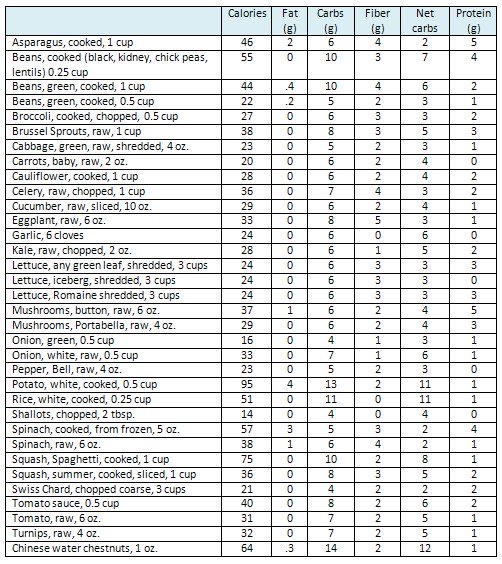

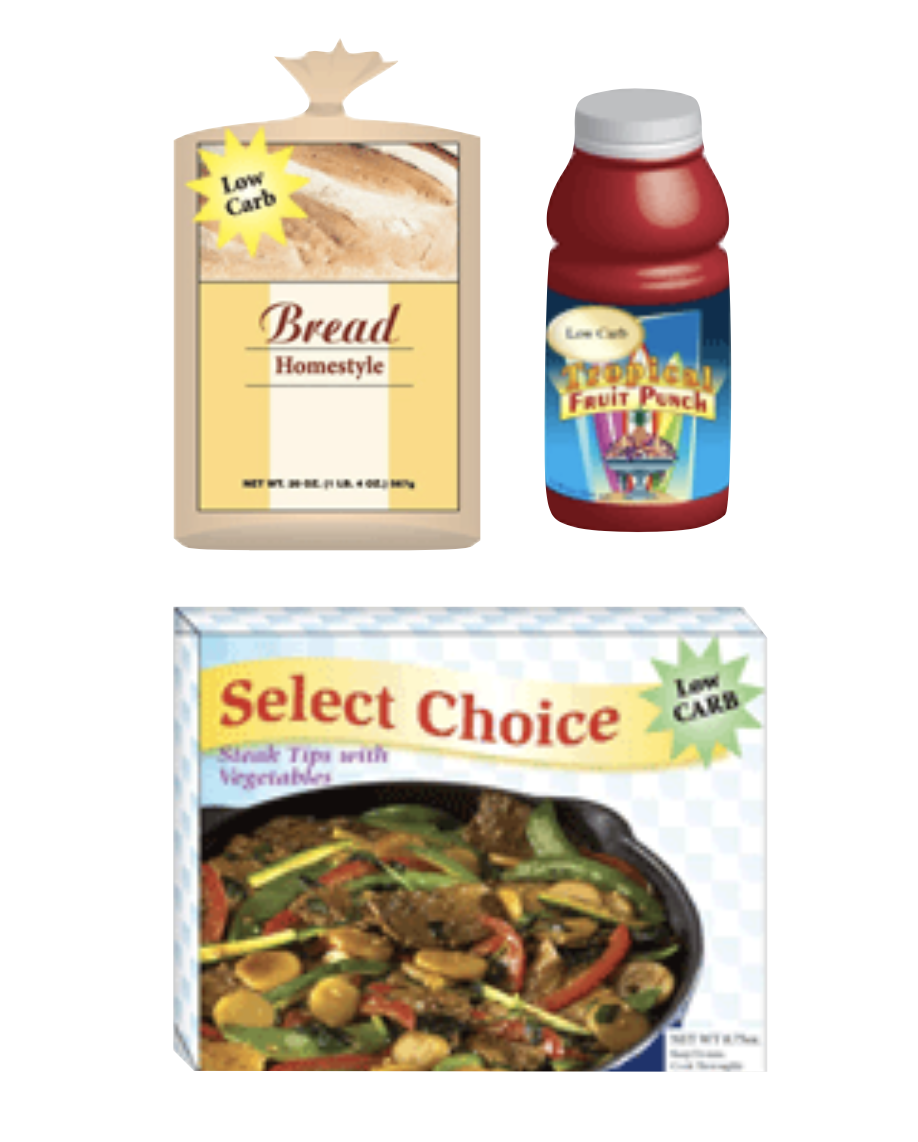
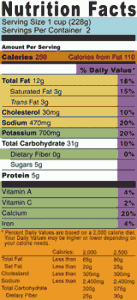

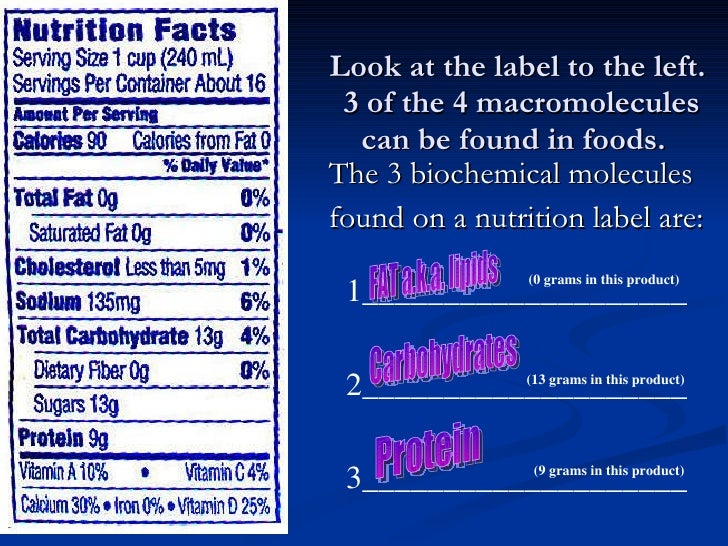

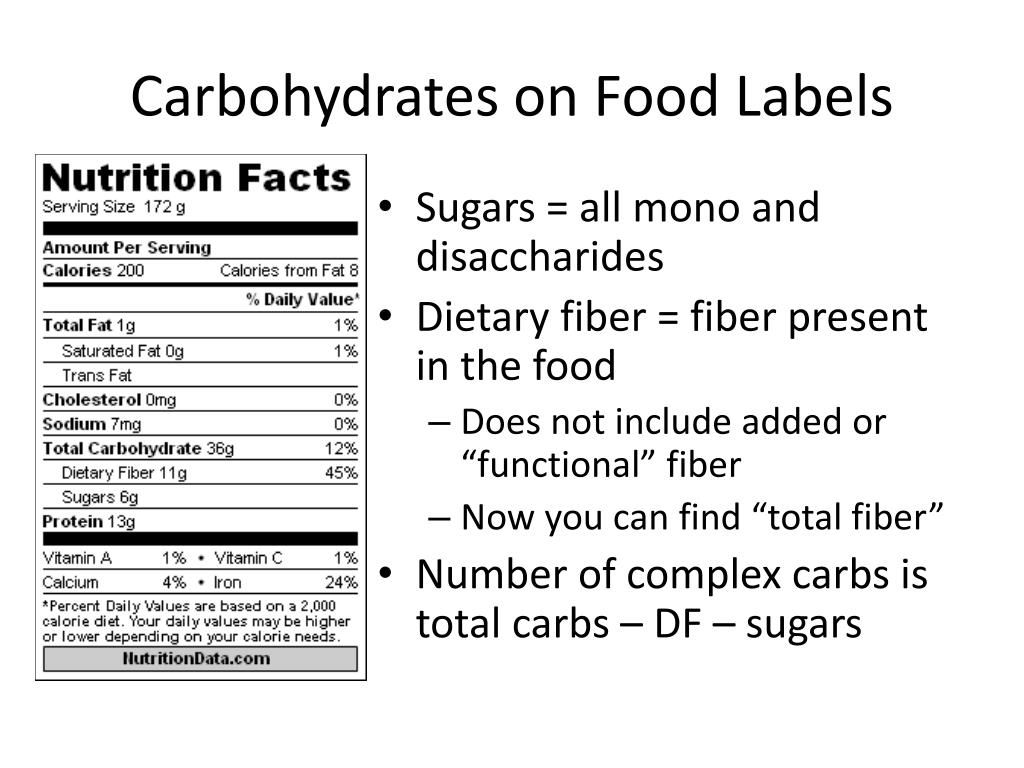



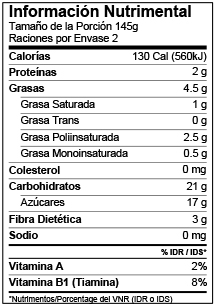
Post a Comment for "43 carbohydrates on food labels"